!["I will sleep hungry, I won't even eat sweets, but in exchange, I expect to live in my motherland, Artsakh" [Blockade from the inside]](https://cdn.infocom.am/enlarge?file=2023-08-05-ab9a84b3-3f5e-4bcd-b049-5e8660312ed8.jpg&type=jpeg&width=900&height=506)
"I will sleep hungry, I won't even eat sweets, but in exchange, I expect to live in my motherland, Artsakh" [Blockade from the inside]
Life seems to have stopped in Artsakh. Just like in the cartoon "Ice Age" when everything was frozen, it's kind of like that atmosphere. There is no movement, people cannot even move from one place to another. This is how the 22-year-old resident of Hatsi village of Martunu region, Tiruhi Gasparyan tells about the blockade of Artsakh. She tries her best to recall heart-warming moments. There's light inside the people, she says, everyone tries to help each other.
"They share what they have, there is no egoism, and we all care and think about the people around us. Perhaps, that is what gives us the strength not to break down and be patient, not to give up, but to fight."
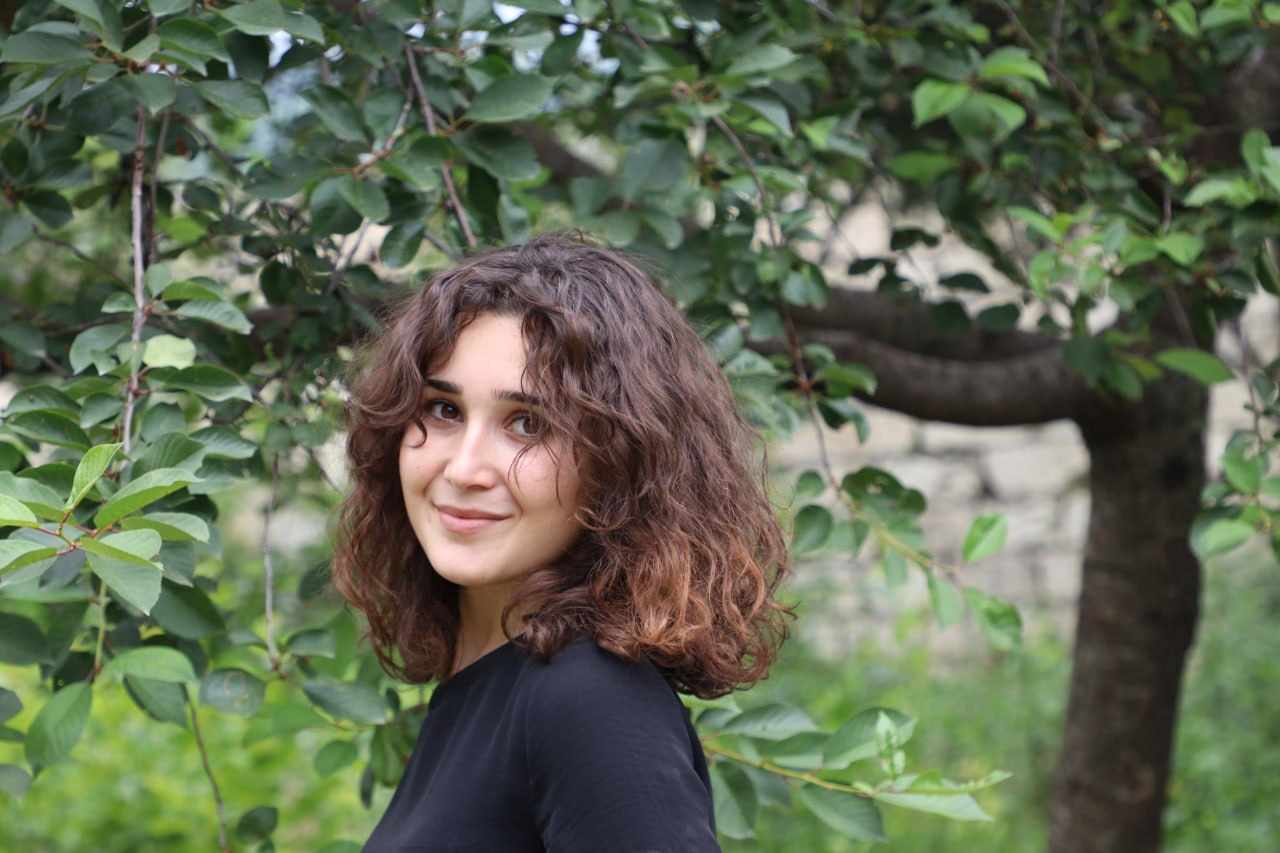
Tiruhi Gasparyan
Tiruhi has graduated from the Artsakh State University, Faculty of Tourism. For 2 years now, she has been working as a tour guide in the summer, and permanently in the Artsakh office of the National Armenian Educational and Cultural Union. Before the Artsakh blockade, she was also engaged in candle-making. Her candles had even got abroad, although she says, the blockade affected this as well. However, Tiruhi does not like to whine even in the most difficult situation. And that trait has also been strengthened thanks to this process, the growing care for each other.
She tells that whoever has lots of cigarettes, shares with others so that they all smoke. It's strange, isn't it, that smoking is harmful to health, but who thinks about it at this crucial moment? Smoking is harmful, but there's a proverb (Armenian) that says getting into trouble with a friend turns into a wedding, so maybe friendship prolongs life.
There is neither normal food nor sweets in Artsakh. If someone has a piece of chocolate or a piece of candy, they divide it into ten parts to make sure everyone gets a part.
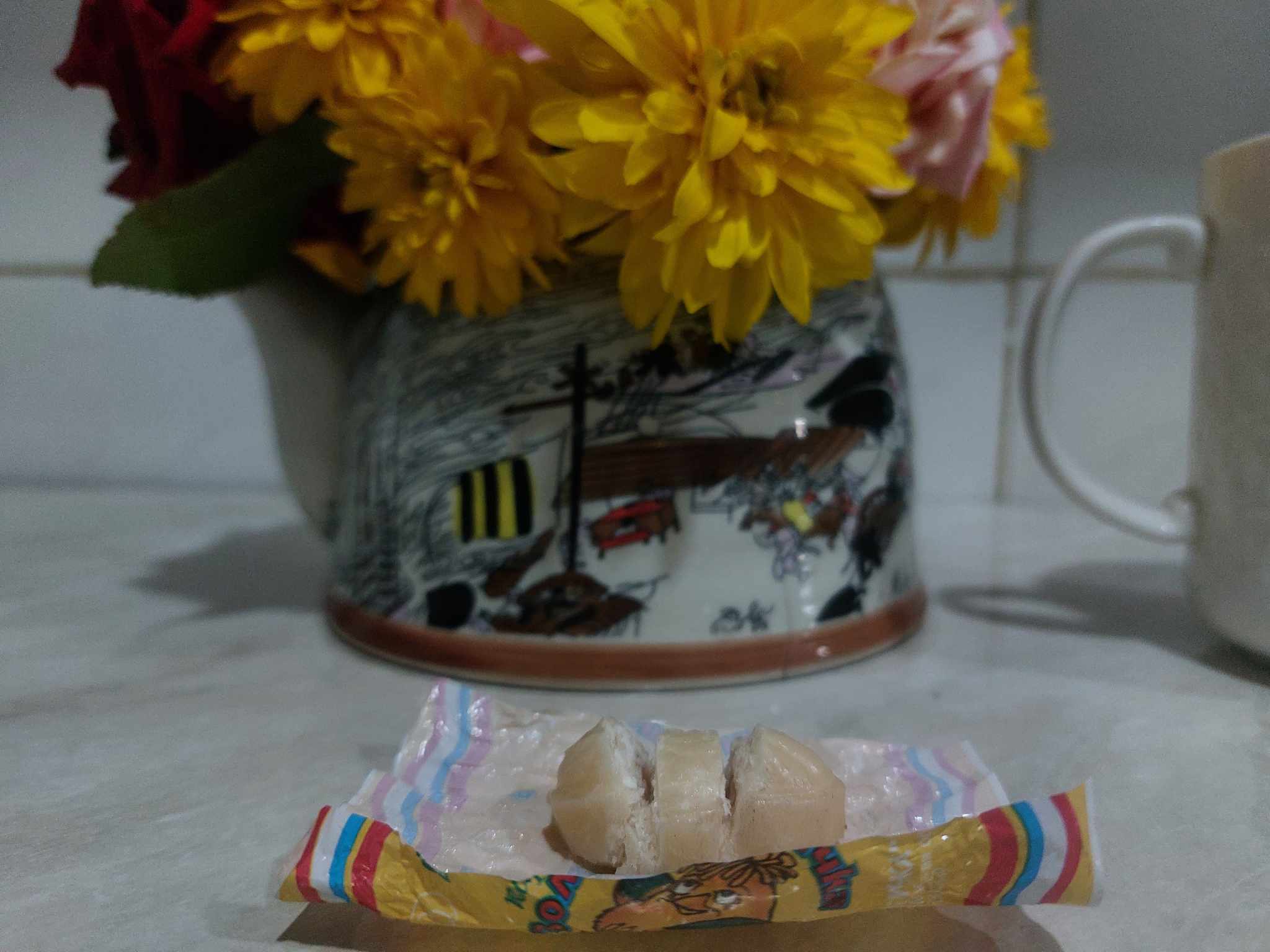
And on birthdays, instead of a cake, they put candles on a watermelon and knock on a relative's door at midnight. "We also give watermelon to the anniversary, soon watermelon will become a cult fruit for us, it saves us in any situation," Tiruhi jokes, "watermelon instead of bread, another watermelon instead of cake, watermelon instead of sweets..."
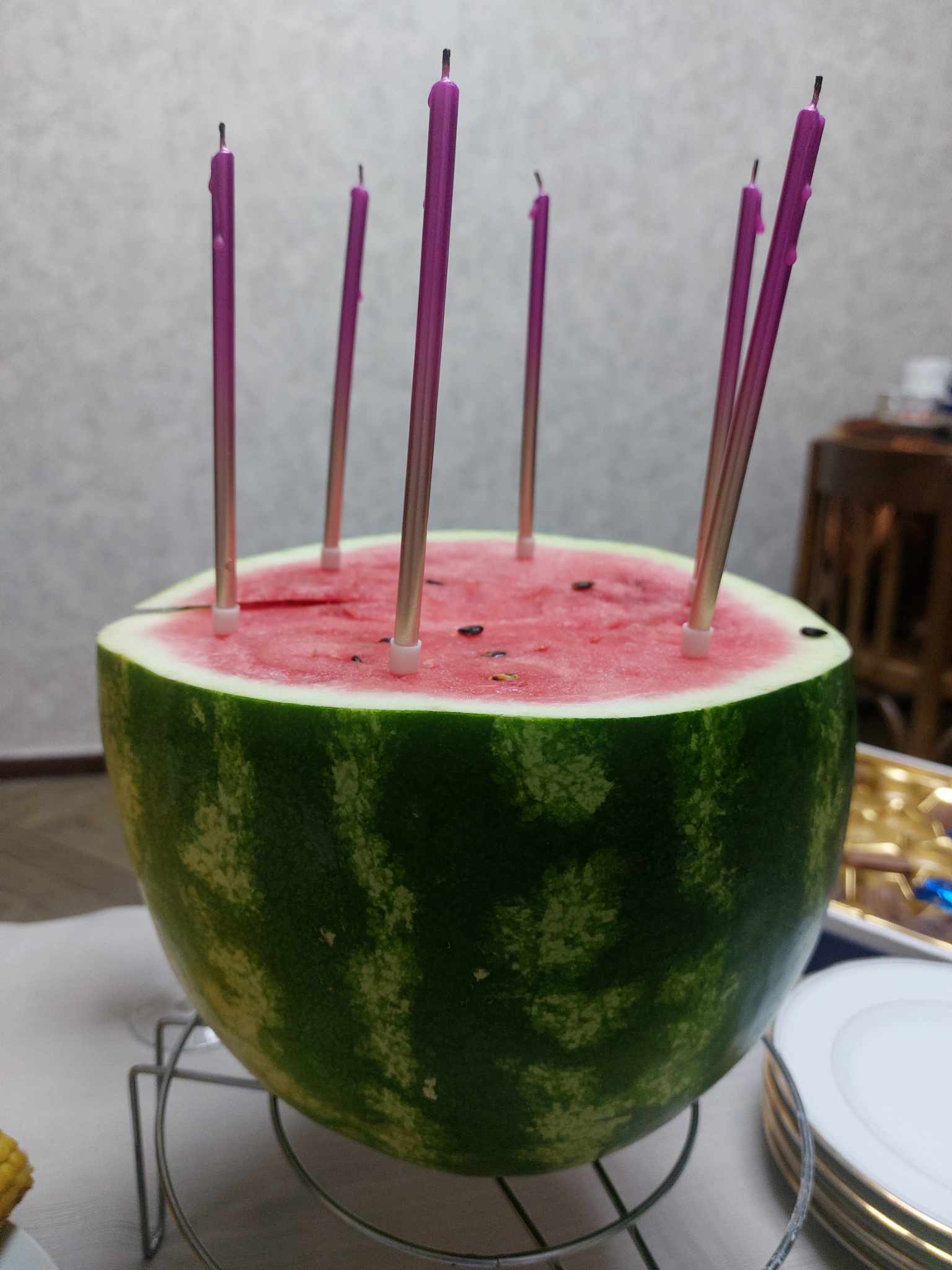
We don't even talk about bread queues, everyone already knows that Artsakh people stand in line for hours for a piece of bread, not even knowing for sure whether they will get it or not. Except that it is more difficult in Stepanakert, at least people in the village have stored flour, they bake bread themselves. They also grow some fruits and vegetables in the gardens. This is how Tiruhi tells and immediately adds: "Actually, the situation is not that good, I just don't like to whine. I may stay hungry, the important thing is to be in my land."
They have almost completely run out of tea, coffee, salt, and such things. Tiruhi says when she noticed that the supply of tea was getting little, she and her friend gathered plants and wild berries from their forest to make tea.
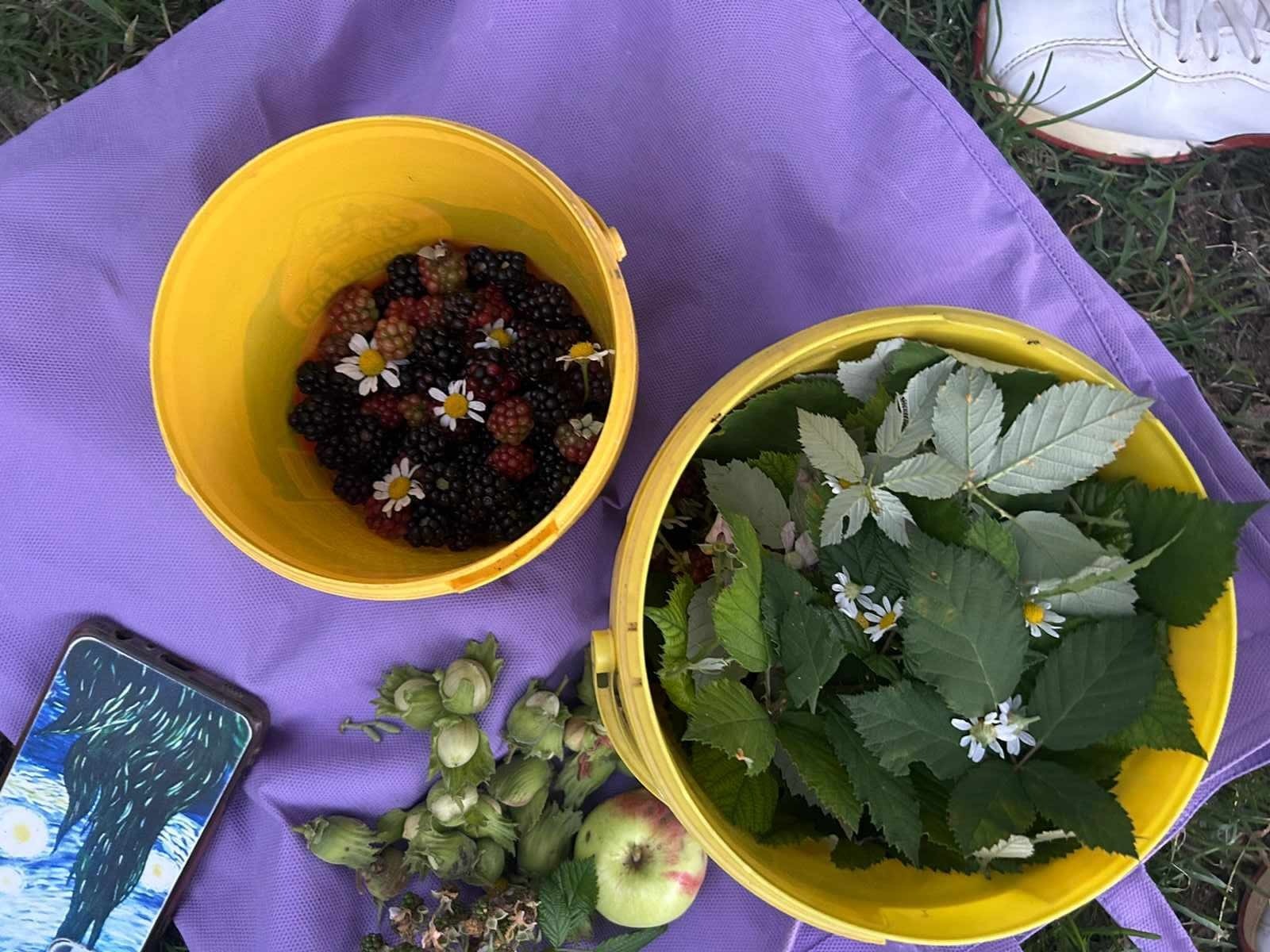
Tiruhi recalls a warm memory from the days of the blockade when they visited the Amaras monastery as a group. "There is a kind old man there, the guardian of the monastery." Before the group entered the church to light a candle (I left early), we talked with him about various topics and walked around the monastery garden. He took out a sharp tool from his pocket and collected vegetables from the garden, saying: "Take it home to eat. You can even marinade it". On their way, they were also given warm, freshly baked bread in the village of Chartar. Tiruhi shows the photo of that day.
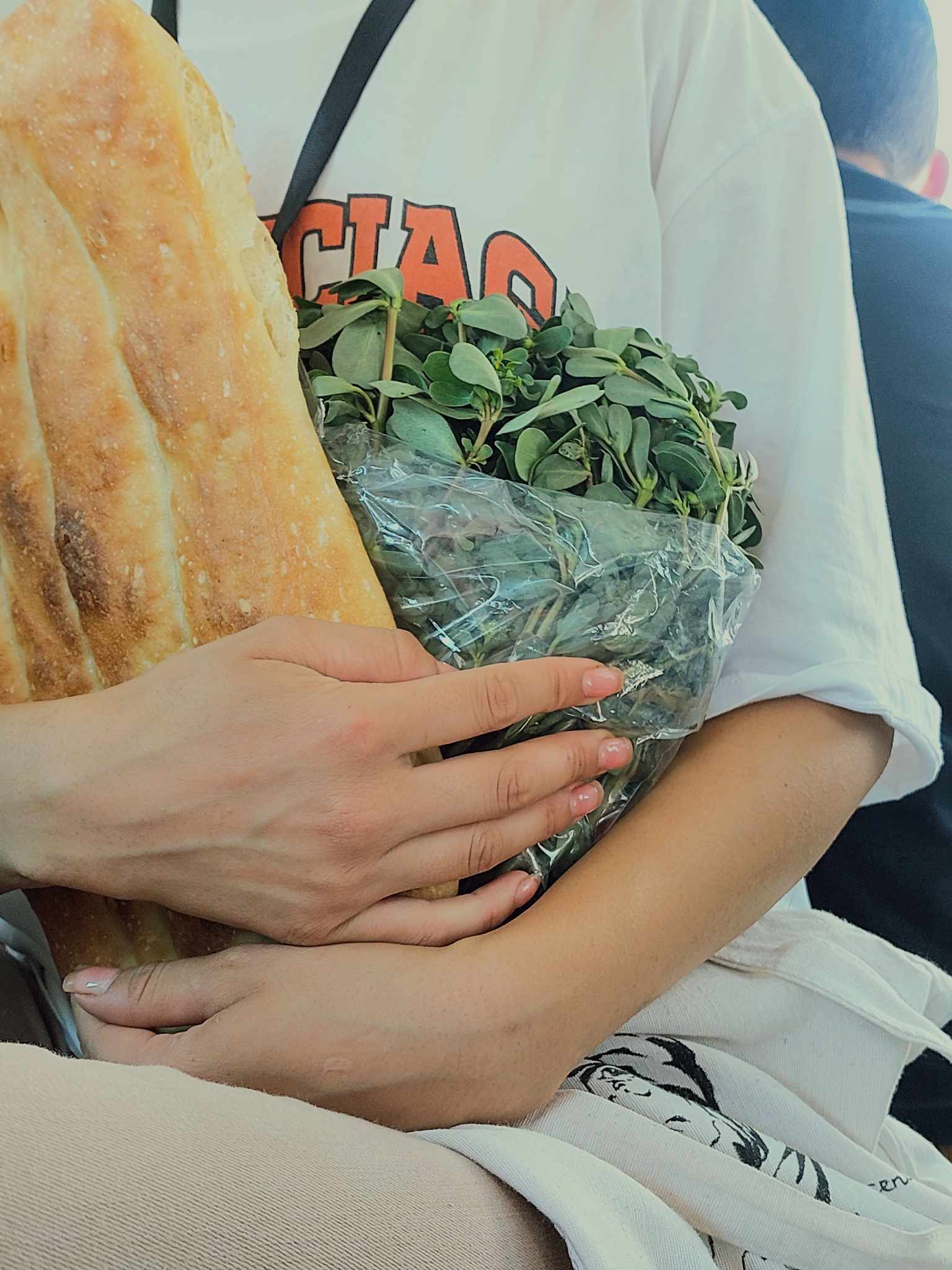
In the conditions of regular lack of gas and electricity, people often have to cook on a wood stove in the heat of summer. At least they can do that in the village, but I wonder, how do the residents of the Stepanakert do?
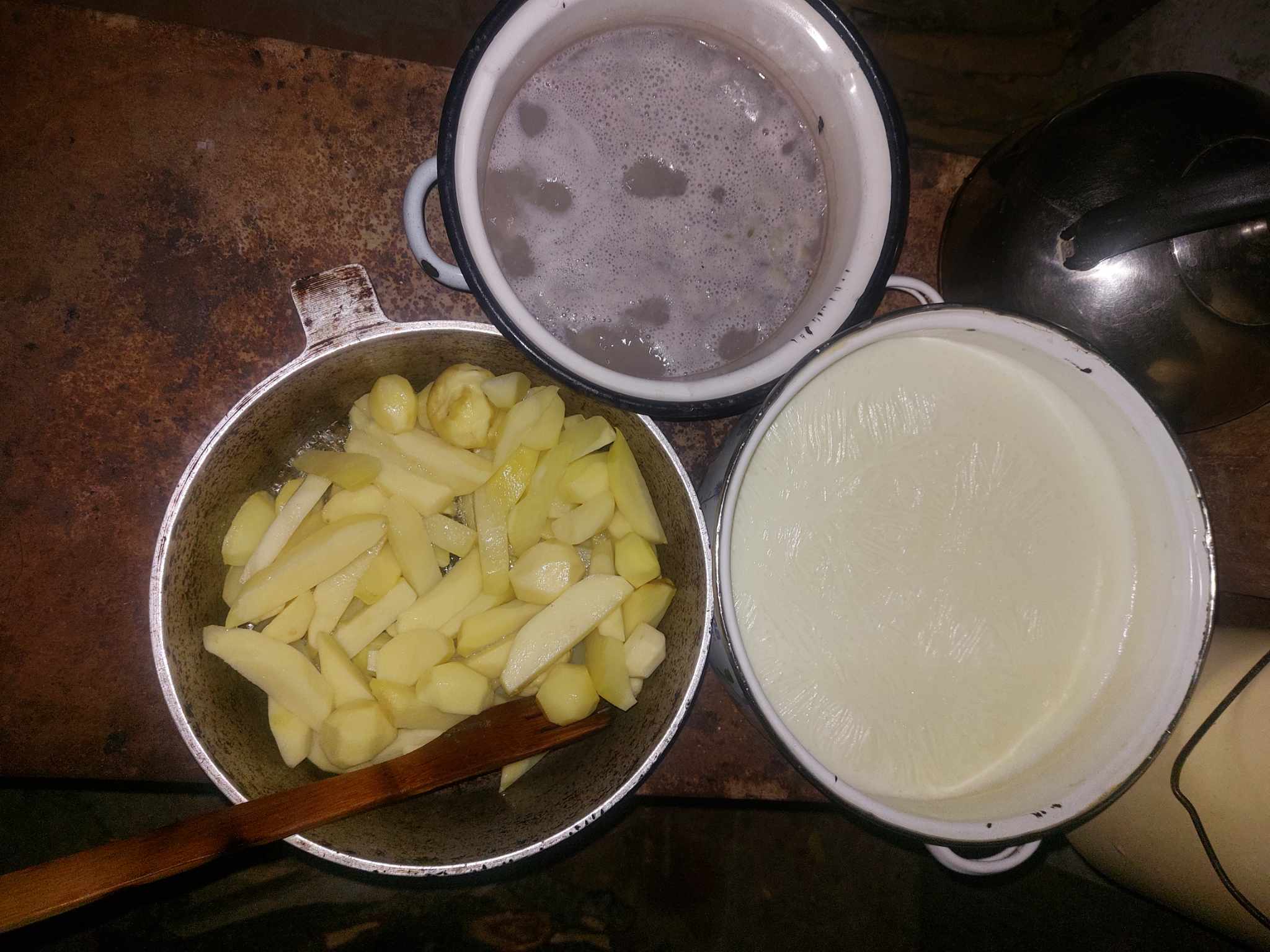
Tiruhi keeps her mindset positive. She says it saves her in every trial. "Thanks to that trait, I am able to stand up again in very difficult situations and to have a positive influence on the people around me. I'll sleep hungry, I won't even eat sweets, convincing myself it's a diet of cutting down the sweets. But in exchange, I expect one thing: to live in my motherland - Artsakh. Trials and difficulties are also for humans. I love life, so I also love fighting for it. My only fear is the loss of my homeland and relatives. Nothing else matters".
Since December 12, 2022, Azerbaijan closed the only road connecting Artsakh to Armenia, the Lachin Corridor. On April 23, 2023, the Azerbaijani side closed the Hakari bridge on the Artsakh-Armenia border, which was in the area of responsibility of the Russian peacekeeping troops, in the Lachin corridor, thus deepening the humanitarian crisis. An Azerbaijani checkpoint was installed on the Hakari bridge. Since June 15 of this year, Azerbaijan has banned all humanitarian transportation through the Lachin Corridor. After that, the ICRC was only able to transport patients to Armenia a few times.
On July 29, Azerbaijan kidnapped a 68-year-old citizen from the ICRC-mediated patient who was being transferred to Armenia from the checkpoint near the Hakari bridge and took him to an unknown place. On August 1, Azerbaijani servicemen kidnapped another citizen who tried to go to Armenia on foot from the village of Hin Shen in Artsakh. His whereabouts are also unknown.
Artsakh has almost completely run out of essential products and medicines. Coupons intended for buying food months ago are now useless because the stores are empty. People go out only to get bread. Artsakh has run out of fuel, public transport does not work at all, and private cars rarely move. The gas supply is regularly interrupted, and electricity is cut off. In Artsakh, 120 thousand people, including 30 thousand children, are under total blockade.
Photos are from Tiruhi Gasparyan's archive
Hayarpi Baghdasaryan

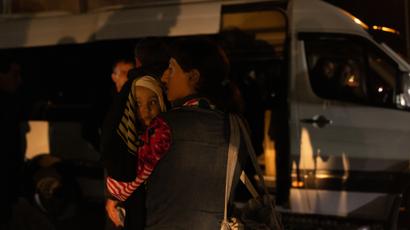
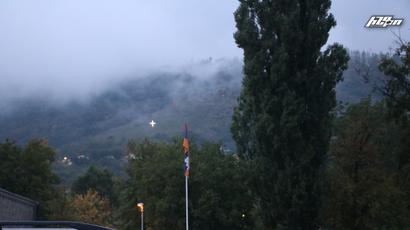
!["I don't want my children to starve, to be subjected to genocide, I want to live in Artsakh, to build our Homeland" [Blockade from the inside]](https://cdn.infocom.am/enlarge?file=2023-08-10-4865f192-ab13-4e84-beab-6232fbca7831.jpg&type=jpeg&width=410&height=230)
!["It's truly unbearable to be captive on your own land; everyone wants to live, yet the possibility of life is uncertain" [Blockade From The Inside]](https://cdn.infocom.am/enlarge?file=2023-08-07-4da13b91-9ae8-4497-a322-a6173bea598d.jpg&type=jpeg&width=410&height=230)
![A mother of five from Artsakh prepares sweets using the last remaining ingredients at home and shares them with neighboring children. [Blockade from the inside]](https://cdn.infocom.am/enlarge?file=2023-08-07-a38344bf-93f4-46f3-be0d-27ad2e27cf27.jpg&type=jpeg&width=410&height=230)
!["When we are in our own country, we endure whatever comes our way; the crucial thing is that we live here as Armenians, bread and hunger, though difficult, are not the primary focus." [Blockade from the Inside]](https://cdn.infocom.am/enlarge?file=2023-08-05-465609c7-c0fd-42d2-9db7-2a568a7428a5.jpg&type=jpeg&width=410&height=230)
!["The fact of Artsakh not being part of Azerbaijan is of greater importance than concerns about food." [Blockade from the inside]](https://cdn.infocom.am/enlarge?file=2023-08-04-3e113b85-6b81-4589-b241-11323a00de2b.jpg&type=jpeg&width=410&height=230)
comment.count (0)